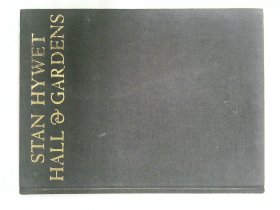
Resources Conservation & Recycling VOL.79 2013/10 资源保护与循环 外文杂志 Elsevier
¥ 39 九品
仅1件
河北保定
认证卖家担保交易快速发货售后保障
ISSN0921-3449
出版单位Elsevier
语言英文
开本16开
上书时间2024-07-16
- 在售商品 暂无
- 平均发货时间 14小时
- 好评率 暂无
- 店主推荐
- 最新上架
商品详情
- 品相描述:九品
-
本店所有图书杂志报纸均为实拍图片,您可点击放大看实际品相。基本都在8-9品以上,多少都有运输过的磨损,个别品相不好;如您需要好品相请您咨询后慎拍,对品相苛刻者请您绕行,以免发生不愉快。本店利薄不接受议价。快递费按不同地区不同重量(每1公斤为一个计价)实际发生费用计算。请您先验货后签收。现在快递都在飞件,如果有任何不满意就请您不要签收。一旦签收即视为满意,不再接受退换货。敬请谅解。敬请各位收到货后百忙之中抽时间给个评价,以资鼓励和提高本店服务质量。在此谢过啦! 因本店工作中的失误给您造成误解和不便请您及时沟通 17731266792 在此首先向您道歉!祝您购物愉快!
人不以高矮胖瘦拿薪水,书本也不是以薄厚论价值。您懂得------
- 商品描述
- The Editors welcome contributions from research, which consider all aspects of resource management, particularly with regard to conservation and sustainability objectives. The journal emphasizes the transformation processes involved in a transition toward more sustainable production and consumption systems. Emphasis is upon technological, economic, institutional and policy aspects of specific resource management practices, such as conservation, recycling and resource substitution, and of "systems-wide" strategies, such as resource productivity improvement, the restructuring of production and consumption profiles and the transformation of industry. Contributions may have relevance at regional, national or international scales and may focus at any level of inquiry from individual resources or technologies to whole sectors or systems of interest. Contributors may emphasise any of the aforementioned aspects as well as scientific and methodological issues. However, submissions which consider process developments at laboratory or pilot scale whose application potential in a practical, economic sense is not evident and that have not yet seen widespread testing or application are discouraged. The journal publishes papers, reviews, analyses and case studies on topics, which include: Transformation of the industrial and societal system towards more sustainable production and consumption patterns, including management, instruments, methods and processes of change. Information and management systems involving resource status, use and flows in society. Innovation processes, tools and methods relating to resource productivity improvement. Technical, societal, economic, business and policy aspects of strategies to improve the sustainability and productivity of resource use, including strategies for managing resource supply and demand, valorizing waste, lowering energy and material intensities and increasing the serviceability of products. Substitution of primary resources by renewable or regenerative alternatives, including agricultural and forest resources and wastes. Life cycle assessment and management of resources, materials and products to improve resource efficiency and productivity, conserve resources and reduce pollution. Societal, economic and technological change for improved recovery and reuse of materials and energy from domestic, commercial or industrial waste streams. Efficient management and use of all resources, including air and water, with regard to the qualitative as well as quantitative aspects of resource use.
— 没有更多了 —




























以下为对购买帮助不大的评价